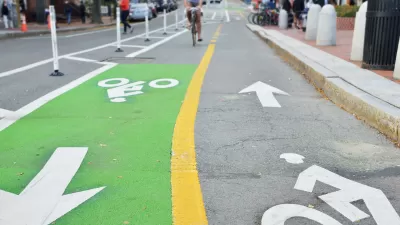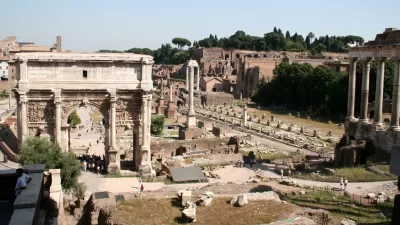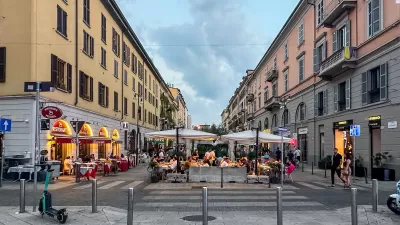Whether in Cupertino, Calif. or Curitiba, Brazil, cities are starting an aggressive move toward sustainability in the Americas. In this evolution, technology, citizen involvement and innovation will play a role transforming cities, Leon Kaye writes.
Brazil has been moving at a faster rate to become more sustainable because of its host role for the 2014 World Cup and 2016 Summer Olympics.
"Rio's government and business community are also funding the Morar Carioca architectural competition that will hire 30 architects to build healthy homes, schools, and clinics for the city's poorest 200,000 residents."
The US federal government on the other hand has been galvanized by architecture firms and technology companies to be more innovative.
"In Dallas, bcWorkshop, an architect firm, rebuilt a neighborhood, Congo Street, by deconstructing homes and with the salvaged materials, built new homes that maximized space while including energy-efficient features like solar panels."
"The push towards smarter building is occurring feverishly at the grass roots level, too. More architects are embracing the concept of humanitarian design, the convergence of cutting-edge architecture, sustainable or recycled materials, and mass scale that together allow the building of homes and community centers at an affordable price.
FULL STORY: New ideas for sustainable architecture in the Americas

Planetizen Federal Action Tracker
A weekly monitor of how Trump’s orders and actions are impacting planners and planning in America.

Maui's Vacation Rental Debate Turns Ugly
Verbal attacks, misinformation campaigns and fistfights plague a high-stakes debate to convert thousands of vacation rentals into long-term housing.

Restaurant Patios Were a Pandemic Win — Why Were They so Hard to Keep?
Social distancing requirements and changes in travel patterns prompted cities to pilot new uses for street and sidewalk space. Then it got complicated.

In California Battle of Housing vs. Environment, Housing Just Won
A new state law significantly limits the power of CEQA, an environmental review law that served as a powerful tool for blocking new development.

Boulder Eliminates Parking Minimums Citywide
Officials estimate the cost of building a single underground parking space at up to $100,000.

Orange County, Florida Adopts Largest US “Sprawl Repair” Code
The ‘Orange Code’ seeks to rectify decades of sprawl-inducing, car-oriented development.
Urban Design for Planners 1: Software Tools
This six-course series explores essential urban design concepts using open source software and equips planners with the tools they need to participate fully in the urban design process.
Planning for Universal Design
Learn the tools for implementing Universal Design in planning regulations.
Heyer Gruel & Associates PA
JM Goldson LLC
Custer County Colorado
City of Camden Redevelopment Agency
City of Astoria
Transportation Research & Education Center (TREC) at Portland State University
Jefferson Parish Government
Camden Redevelopment Agency
City of Claremont





























